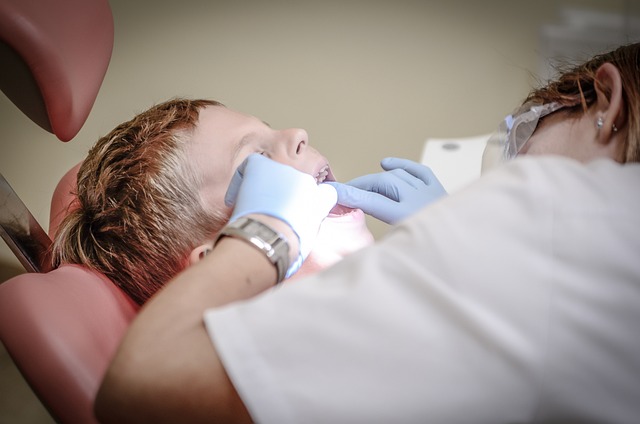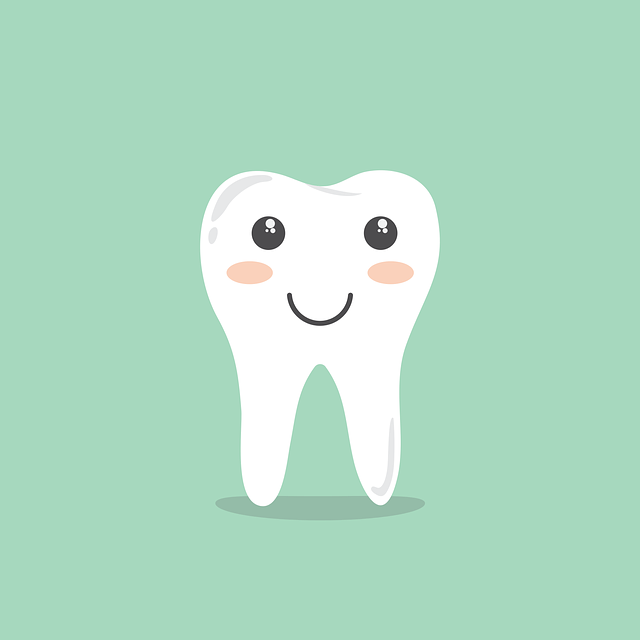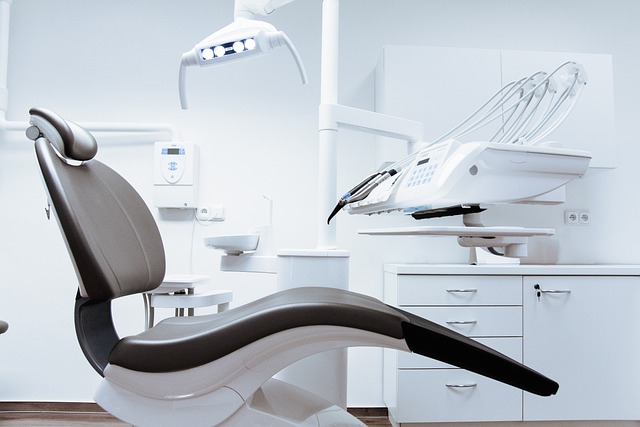Demystifying Periodontists: The Tooth Extraction Expertise
Have you???? ever wondered about the highly ????specialized???? field of periodontology? You may have heard the term “periodontist” thrown around, but aren’t quite certain about what they do or???? why seeking their expertise is crucial for your oral health. Fear not, because in this article, we will demystify the world of ????periodontists and delve into their remarkable skills in tooth extraction. Prepare to be enlightened and reassured as we navigate through the intricacies of periodontal care, offering you a friendly guide???? to all your tooth-related concerns. Get ready to sharpen your understanding and gain a new appreciation for the tooth extraction expertise of these dental professionals!
1. Introducing Periodontists: Masters of Tooth Extraction Techniques
Periodontists are dental specialists???? who focus on preventing, diagnosing, and treating diseases that affect the gums, bone, and other supporting ????structures of the teeth. While their expertise extends to various aspects of oral health, they are particularly known for their mastery of tooth extraction ????techniques.
When it comes ????to tooth extraction, periodontists are trained to handle a wide range of cases, including complex extractions???? and impacted wisdom ????teeth removal. They possess the knowledge and skills to perform these procedures???? with precision and ????care, ensuring minimal pain and discomfort for the patient. Here are some reasons why periodontists???? are regarded as masters ????of tooth ????extraction ????techniques:
- Extensive education and training: Periodontists undergo several years of rigorous education and specialized training in ????dental school, focusing on the???? intricacies of ????periodontal disease, oral surgery, and tooth extractions. This comprehensive ????knowledge equips them with???? the expertise to handle even the most challenging cases.
- State-of-the-art technology: Periodontists utilize advanced dental technology to enhance the accuracy and efficiency of tooth extraction procedures. From digital imaging to 3D imaging systems, these tools allow periodontists to visualize the tooth and???? surrounding structures more clearly, resulting in better outcomes.
- Focus???? on patient comfort: Periodontists prioritize patient comfort throughout the tooth extraction process. They adopt techniques such as sedation dentistry and local anesthesia to ensure a pain-free experience. Additionally, they provide detailed post-operative care instructions to promote a smooth recovery.
Periodontists are ????dental specialists who ????focus on the prevention, diagnosis,???? and treatment of gum diseases, as well as the placement???? of dental implants. They play a vital role in oral health care and work ????closely with general dentists to ensure ????that patients ????receive comprehensive and personalized treatment plans. Specializing in the structures that support the teeth, such as???? the gums, bones, and ligaments, periodontists are skilled in both ????non-surgical and surgical ????techniques. These experts are trained to address ????a wide range of oral health???? issues, including gum ????inflammation, gum recession, and periodontal pocketing. By evaluating the health of a patient’s gums, they can develop strategies to???? manage and ????treat gum diseases effectively. Periodontists???? are also proficient ????in performing procedures like scaling and root planing, which ????involve deep cleaning of the roots of teeth to remove plaque ????and tartar buildup. Additionally, they are experts in providing dental implant therapy, a popular solution for patients with missing teeth, ensuring a fully functional and aesthetically pleasing smile. When it comes to oral health, ????tooth extraction is ????a crucial procedure that becomes necessary in certain situations. Although the thought of having a tooth removed may cause some anxiety, it is essential???? to understand the circumstances in which extraction is recommended by dental professionals. Here are some situations in which tooth extraction may be necessary: Understanding the importance of tooth ????extraction: While the thought of removing a tooth may seem daunting, tooth extraction plays a vital role in maintaining oral health and???? preventing ????further complications. ????By extracting damaged or ????problematic ????teeth, the risk of infection, pain, and deterioration of nearby teeth is significantly reduced. It ????is crucial to consult with a ????dental professional to determine if tooth extraction is necessary in your specific case. They will thoroughly assess your oral health and provide you with personalized recommendations to ensure the ????best???? outcome for your smile. Periodontists???? are dental professionals who specialize in the prevention, diagnosis, and treatment of???? gum diseases and the placement of dental ????implants. They possess ????specialized expertise that goes beyond what general dentists???? offer. Here, we will explore the unique skills and knowledge that periodontists bring to the dental field. Comprehensive Gum Disease Treatment: One of the???? primary areas where periodontists excel is in the treatment of gum ????diseases, such as gingivitis and periodontitis. ????With their specialized training, periodontists can provide a thorough examination of your gums and develop personalized treatment ????plans to effectively manage these conditions. They can ????perform scaling and ????root planing procedures to remove???? plaque and tartar build-up, promote gum healing, and prevent further damage to the ????teeth and???? supporting structures. Dental Implant Placement: Another area where periodontists shine is in the placement of dental implants. Dental implants are a popular and effective solution for replacing missing teeth. Periodontists???? have the expertise to assess your ????oral health???? and determine if you ????are a suitable candidate for dental implants. They have the skills to precisely insert implants into the jawbone and ensure proper integration for long-term stability. Periodontists also provide guidance on implant care and maintenance to ensure the success and longevity of your new teeth. Whether it’s gum disease treatment or ????dental implant placement, periodontists play a crucial role in maintaining???? optimal oral health. Their specialized expertise and advanced training make them the go-to professionals for addressing complex periodontal issues. If you’re in need of specialized gum care or considering dental implants, don’t hesitate to seek the assistance of a skilled periodontist. Choosing the right periodontist is an important decision for your oral health. Whether you’re???? seeking treatment for ????gum disease or considering dental implants, finding a periodontist who is the ????perfect match for your needs is crucial. To help you in your search, here are some key factors to consider:

3. The ????Vital Importance of Tooth Extraction: When is it Necessary?

4. Unraveling the Specialized Expertise of Periodontists: Beyond General Dentistry

5. How to Choose the Right ????Periodontist: Finding???? the Perfect???? Match for Your Oral Health Needs
Remember, choosing a periodontist ????who aligns ????with your personal preferences and makes???? you feel comfortable is just as important as their professional qualifications. Considering factors such as location, office hours, and communication style can help you find the perfect match. Schedule consultations with a few ????potential periodontists to gauge their compatibility and discuss your needs. With the right periodontist???? by your side, you can???? take confident steps towards achieving optimal oral health!
???? Preparation: Before the tooth extraction process, your dentist will begin by numbing the???? area around the tooth to ensure you feel little to no discomfort during the procedure. Depending???? on your specific case, your dentist may also recommend the use of sedation or anesthesia. Once you are comfortable, the ????dentist will prepare the necessary instruments and make sure the extraction site???? is clean and free of any debris or infection.
Extraction: Using specialized tools, your dentist will carefully loosen the tooth from its socket. Gentle pressure will be???? applied to widen the tooth socket, allowing for the removal of the tooth. In ????some cases,???? a tooth???? may need to be ????divided ????into sections for easier extraction. Once the tooth is???? successfully extracted,???? your dentist may need to place stitches to ????aid in???? the healing process. These stitches are usually self-dissolving,???? so you won’t need to return for their removal.
After the extraction, your dentist will provide you with detailed instructions on caring for the???? extraction site, including how to manage any discomfort or swelling that???? may occur. It’s???? important to follow these???? instructions closely in order to promote proper healing and minimize the risk of complications.
7. Debunking Myths About Tooth Extraction: Separating Fact from Fiction
When it comes to tooth extraction, there???? are many myths and misconceptions that can ????cause ????unnecessary anxiety. Let’s separate fact from fiction???? and debunk some common myths:
Myth 1: Tooth extraction is extremely???? painful.
- Fact: With modern anesthesia and techniques, tooth extractions are generally painless. Dentists will numb the area around the tooth, ensuring you don’t feel any discomfort during the procedure. After the extraction, you may experience some mild discomfort or soreness, but this can be easily managed with over-the-counter pain relievers.
Myth 2: Tooth extraction leads to facial disfigurement.
- Fact: This is a common misconception. While it’s true that the tooth’s absence can create a slight change in your overall facial structure, significant disfigurement is extremely rare. In fact, modern dentistry offers various options to replace missing teeth, such as dental implants or bridges, ????which can restore your smile and prevent any noticeable changes in your appearance.
When it comes to tooth extraction, it’s natural to feel a ????bit apprehensive. However, with advanced techniques available today, you can ensure a smooth ????and comfortable experience. Here are some tips to minimize discomfort during your tooth extraction:
-
- Sedation options: Talk to your dentist about the???? sedation options available???? to make???? the procedure more comfortable. Depending on your needs and preferences, you may opt for local anesthesia, nitrous ????oxide (laughing gas), oral sedatives, or even intravenous (IV) sedation.
- Preventive pain management: Taking over-the-counter pain relievers such as ibuprofen or acetaminophen before ????the extraction can help minimize discomfort afterwards. Follow your dentist’s instructions and dosage recommendations.
- Effective numbing techniques: Your dentist will use a local ????anesthetic to numb the area around the tooth before the extraction. With advanced techniques, they can ensure you feel???? little to no pain during the procedure. Communicate with your dentist ????if you start feeling any discomfort during the extraction.
Furthermore, dentists prioritize your comfort and aim to ????provide a???? stress-free environment during the tooth extraction. They may use distraction techniques, such as playing soothing music, to???? help you relax. Remember to communicate openly with your dentist about your concerns and preferences, as they are there to ????ensure a smooth and comfortable???? tooth extraction ????experience ????for you.
After getting a tooth extracted, it’s important to take proper care of the extraction site to ensure optimal healing ????and minimize any discomfort. Following these tips will help you have a smooth and successful recovery:
-
- Take it easy: Rest is crucial for your body to???? heal properly ????after a???? tooth extraction. Avoid any strenuous???? activities or exercises for ????at least 24-48 hours.
- Apply gentle pressure: Bite down on a???? clean???? gauze pad placed over the extraction site to control bleeding and encourage the formation of a blood clot. Replace???? the ????gauze pad as needed.
- Use cold compresses: Applying an???? ice pack to the affected area can help reduce swelling and relieve pain. Use it for about 15 minutes at a time, with a break of at least 15 minutes in between.
- Keep your head elevated: Prop???? your head up with pillows when lying down???? or sleeping. This will help ????minimize swelling and promote proper drainage.
Additionally, it is important to avoid???? certain activities and follow proper oral hygiene practices to ensure a successful recovery. Here are a few more tips to assist you in your road ????to recovery:
-
- Avoid smoking and drinking through a???? straw: These activities can dislodge the blood clot and delay the healing process.
- Stick to soft foods: For the first few days after the extraction, stick to soft and easy-to-chew foods such as yogurt, soup, mashed potatoes, and scrambled eggs. Avoid hot, spicy, and crunchy foods that could irritate the extraction site.
- Keep your mouth clean: Carefully brush your teeth, but be gentle around the extraction site to avoid disturbing the blood clot. Rinse your???? mouth with a saltwater solution ????(mix 1/2 teaspoon of salt into ????8 ounces of warm water) after meals to keep the area clean.
- Take prescribed medications: If ????your dentist prescribed any medications,???? such as painkillers or antibiotics, be sure to take them as directed to manage pain and prevent infection.
????
???? ????
10. Collaborating with Periodontists: ????The Role of General Dentists in Your Oral Health Journey
Collaborating with periodontists is an essential part of your oral health journey. General dentists play a crucial role in coordinating your dental care,???? working???? alongside periodontists to ensure you receive comprehensive treatment. Here’s what you need to know about the collaboration between general dentists and periodontists:
The responsibilities of general dentists:
- Conducting regular check-ups and cleanings to monitor your oral health
- Identifying gum disease???? symptoms and referring patients to periodontists for specialized treatment
- Creating treatment plans in collaboration with periodontists for???? more complex cases
- Providing education and guidance ????to help you maintain good oral???? hygiene at home
The role of periodontists:
- Diagnosing and treating gum diseases, such as periodontitis
- Performing ????surgery to address gum recession or periodontal pocketing
- Placing dental implants to replace missing teeth
- Collaborating with general dentists to develop???? an optimal treatment plan for each patient
By combining the expertise of general dentists and periodontists, you can receive comprehensive care tailored to your specific needs. Together,???? they work towards maintaining???? the health and beauty of your smile throughout your oral health journey.
Frequently Asked Questions
Q: What is a periodontist and how are they different from a regular dentist?
A: A periodontist is a???? dental specialist who specializes in diagnosing and treating conditions that affect the gums, tissues, and bones that support the teeth. While regular dentists primarily focus on???? the general maintenance of oral health, periodontists have additional training to provide specialized care for periodontal disease and tooth extractions.
Q: Why would???? I need to see a periodontist for tooth extraction?
A:???? There are several reasons why???? you may be???? referred to???? a periodontist for a ????tooth extraction. These specialists have a deep understanding of the oral structures and are highly skilled in extracting teeth, even in complex cases. If you have advanced gum disease, require full-mouth extractions, or have impacted wisdom teeth, a periodontist is the ideal ????professional to ensure a safe and successful procedure.
Q: Are periodontists experts in pain management during tooth extractions?
A: Absolutely! Pain management is an essential part of any dental procedure, and periodontists are well-versed in ensuring your comfort throughout the tooth extraction process. They employ various techniques, such as local anesthesia and sedation, to keep you pain-free during the procedure and ????minimize any discomfort???? following it.
Q: What ????are the potential risks or complications associated with ????tooth extractions ????performed by a???? periodontist?
A: While tooth extractions are generally safe, it is essential to be aware of potential ????risks. Periodontists are highly trained professionals who prioritize patient safety and are skilled in minimizing complications. However, as with any medical procedure, there is a slight risk of infection, bleeding,???? and damage to nearby structures. Your periodontist will discuss these potential risks with you beforehand and take appropriate measures to minimize them.
Q: What ????can I expect during a tooth extraction performed by a periodontist?
A: When you visit a periodontist for a ????tooth extraction, you can expect a thorough examination of your mouth, including X-rays to assess the tooth’s positioning. The ????periodontist will then discuss the procedure with you, explain any necessary preparations, and answer any questions you may ????have. During ????the extraction, you will receive local anesthesia to numb the area, ensuring a painless ????experience.???? If needed, the periodontist ????may provide you with sedation to help you relax ????during???? the procedure. Afterward, you will receive post-operative instructions and any necessary medications to???? aid in a smooth recovery.
Q: How long does ????it take to recover from a tooth???? extraction ????performed by a periodontist?
A: The recovery time can vary depending ????on the complexity of the extraction and individual factors. Generally, you can expect some discomfort and swelling for a few days following the procedure. Your periodontist will guide you on proper post-operative care, including oral hygiene instructions ????and a recommended diet. Most patients recover fully within a week or two and can resume their regular activities without any issues.
Q:???? Can a periodontist provide additional???? treatments after a tooth extraction?
A: Yes! In addition to tooth extractions, periodontists are skilled in providing various treatments and procedures. They specialize in gum disease management, dental implants, bone grafting, and gum recession treatments. If you require any further oral health ????treatments or have concerns about your periodontal ????health, your periodontist will be able to guide ????you in the right direction.
Q: How do I find a???? qualified periodontist near???? me?
A: To find a qualified periodontist near you,???? start???? by asking your regular dentist for a recommendation. They will likely have trusted ????colleagues they can refer you to. Additionally, you can search online for periodontists in your area, read patient reviews, and check their credentials and experience. It is important to ????choose a periodontist who is???? board-certified, experienced, and has a???? friendly and caring demeanor that matches your needs.
Remember, visiting a???? periodontist for tooth extractions???? or other???? specialized treatments is a step towards maintaining optimal oral health.???? Don’t hesitate to reach out to them with???? any ????questions or concerns???? – they are there???? to???? demystify ????the process and provide you with the best care possible.
Conclusion
In conclusion, understanding the???? critical role of periodontists and their ????expertise in tooth extraction is vital for maintaining optimal oral health. With???? their advanced knowledge and specialized training, these dental experts are ????equipped to handle even the most complex extractions with skill and efficiency.
Throughout this article, we have demystified the world of periodontists, exploring their qualifications, scope of practice, and the various reasons one might need their ????services. We have???? learned that periodontists go beyond simply removing teeth, employing their extensive knowledge of the surrounding tissues and bone???? structure to ensure the best possible outcomes for their patients.
When faced with the prospect???? of a tooth extraction, it is essential to seek the expertise of a periodontist. Their thorough evaluation and comprehensive treatment plan will address not only the immediate dental concerns but also potential long-term consequences, such as preserving bone density and gum health.
Remember, the periodontist’s friendly and approachable demeanor will ????help ease any anxiety associated with the tooth extraction process. By choosing a periodontist, you are not only selecting a skilled professional but also a caring and compassionate partner in your oral health journey.
So, the next???? time you or a ????loved one???? require a tooth extraction, don’t hesitate to seek the expertise ????of a periodontist. Rest assured that???? you will receive top-quality care, ensuring a healthy???? smile that lasts a lifetime.






